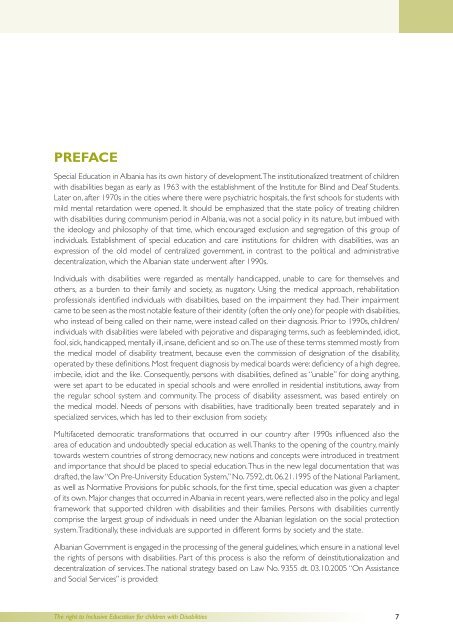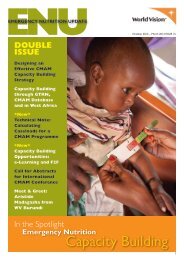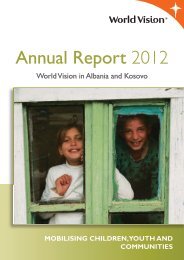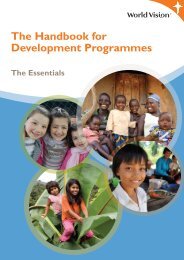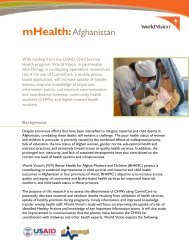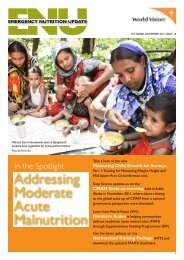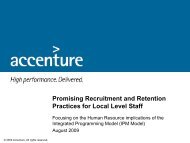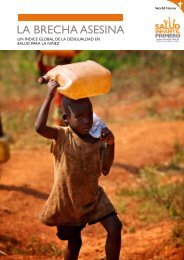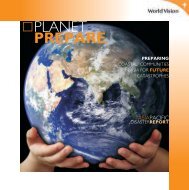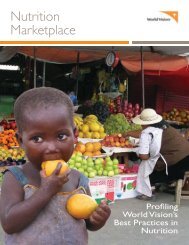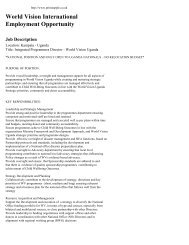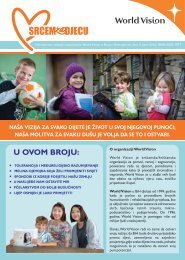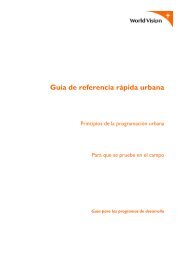the right to inclusive education for children with disabilities
the right to inclusive education for children with disabilities
the right to inclusive education for children with disabilities
You also want an ePaper? Increase the reach of your titles
YUMPU automatically turns print PDFs into web optimized ePapers that Google loves.
PrefaceSpecial Education in Albania has its own his<strong>to</strong>ry of development. The institutionalized treatment of <strong>children</strong><strong>with</strong> <strong>disabilities</strong> began as early as 1963 <strong>with</strong> <strong>the</strong> establishment of <strong>the</strong> Institute <strong>for</strong> Blind and Deaf Students.Later on, after 1970s in <strong>the</strong> cities where <strong>the</strong>re were psychiatric hospitals, <strong>the</strong> first schools <strong>for</strong> students <strong>with</strong>mild mental retardation were opened. It should be emphasized that <strong>the</strong> state policy of treating <strong>children</strong><strong>with</strong> <strong>disabilities</strong> during communism period in Albania, was not a social policy in its nature, but imbued <strong>with</strong><strong>the</strong> ideology and philosophy of that time, which encouraged exclusion and segregation of this group ofindividuals. Establishment of special <strong>education</strong> and care institutions <strong>for</strong> <strong>children</strong> <strong>with</strong> <strong>disabilities</strong>, was anexpression of <strong>the</strong> old model of centralized government, in contrast <strong>to</strong> <strong>the</strong> political and administrativedecentralization, which <strong>the</strong> Albanian state underwent after 1990s.Individuals <strong>with</strong> <strong>disabilities</strong> were regarded as mentally handicapped, unable <strong>to</strong> care <strong>for</strong> <strong>the</strong>mselves ando<strong>the</strong>rs, as a burden <strong>to</strong> <strong>the</strong>ir family and society, as nuga<strong>to</strong>ry. Using <strong>the</strong> medical approach, rehabilitationprofessionals identified individuals <strong>with</strong> <strong>disabilities</strong>, based on <strong>the</strong> impairment <strong>the</strong>y had. Their impairmentcame <strong>to</strong> be seen as <strong>the</strong> most notable feature of <strong>the</strong>ir identity (often <strong>the</strong> only one) <strong>for</strong> people <strong>with</strong> <strong>disabilities</strong>,who instead of being called on <strong>the</strong>ir name, were instead called on <strong>the</strong>ir diagnosis. Prior <strong>to</strong> 1990s, <strong>children</strong>/individuals <strong>with</strong> <strong>disabilities</strong> were labeled <strong>with</strong> pejorative and disparaging terms, such as feebleminded, idiot,fool, sick, handicapped, mentally ill, insane, deficient and so on. The use of <strong>the</strong>se terms stemmed mostly from<strong>the</strong> medical model of disability treatment, because even <strong>the</strong> commission of designation of <strong>the</strong> disability,operated by <strong>the</strong>se definitions. Most frequent diagnosis by medical boards were: deficiency of a high degree,imbecile, idiot and <strong>the</strong> like. Consequently, persons <strong>with</strong> <strong>disabilities</strong>, defined as “unable” <strong>for</strong> doing anything,were set apart <strong>to</strong> be educated in special schools and were enrolled in residential institutions, away from<strong>the</strong> regular school system and community. The process of disability assessment, was based entirely on<strong>the</strong> medical model. Needs of persons <strong>with</strong> <strong>disabilities</strong>, have traditionally been treated separately and inspecialized services, which has led <strong>to</strong> <strong>the</strong>ir exclusion from society.Multifaceted democratic trans<strong>for</strong>mations that occurred in our country after 1990s influenced also <strong>the</strong>area of <strong>education</strong> and undoubtedly special <strong>education</strong> as well. Thanks <strong>to</strong> <strong>the</strong> opening of <strong>the</strong> country, mainly<strong>to</strong>wards western countries of strong democracy, new notions and concepts were introduced in treatmentand importance that should be placed <strong>to</strong> special <strong>education</strong>. Thus in <strong>the</strong> new legal documentation that wasdrafted, <strong>the</strong> law “On Pre-University Education System,” No. 7592, dt. 06.21.1995 of <strong>the</strong> National Parliament,as well as Normative Provisions <strong>for</strong> public schools, <strong>for</strong> <strong>the</strong> first time, special <strong>education</strong> was given a chapterof its own. Major changes that occurred in Albania in recent years, were reflected also in <strong>the</strong> policy and legalframework that supported <strong>children</strong> <strong>with</strong> <strong>disabilities</strong> and <strong>the</strong>ir families. Persons <strong>with</strong> <strong>disabilities</strong> currentlycomprise <strong>the</strong> largest group of individuals in need under <strong>the</strong> Albanian legislation on <strong>the</strong> social protectionsystem. Traditionally, <strong>the</strong>se individuals are supported in different <strong>for</strong>ms by society and <strong>the</strong> state.Albanian Government is engaged in <strong>the</strong> processing of <strong>the</strong> general guidelines, which ensure in a national level<strong>the</strong> <strong>right</strong>s of persons <strong>with</strong> <strong>disabilities</strong>. Part of this process is also <strong>the</strong> re<strong>for</strong>m of deinstitutionalization anddecentralization of services. The national strategy based on Law No. 9355 dt. 03.10.2005 “On Assistanceand Social Services” is provided:The <strong>right</strong> <strong>to</strong> Inclusive Education <strong>for</strong> <strong>children</strong> <strong>with</strong> Disabilities7


